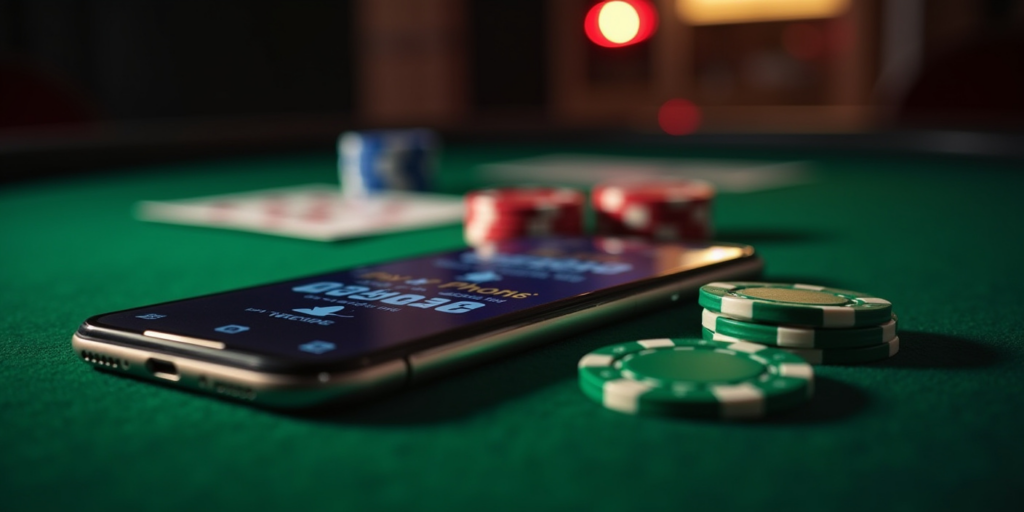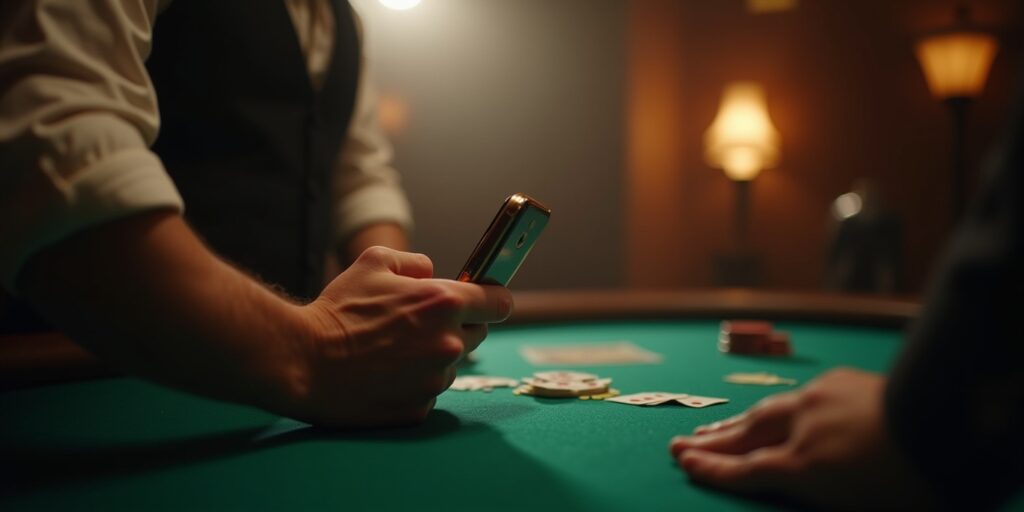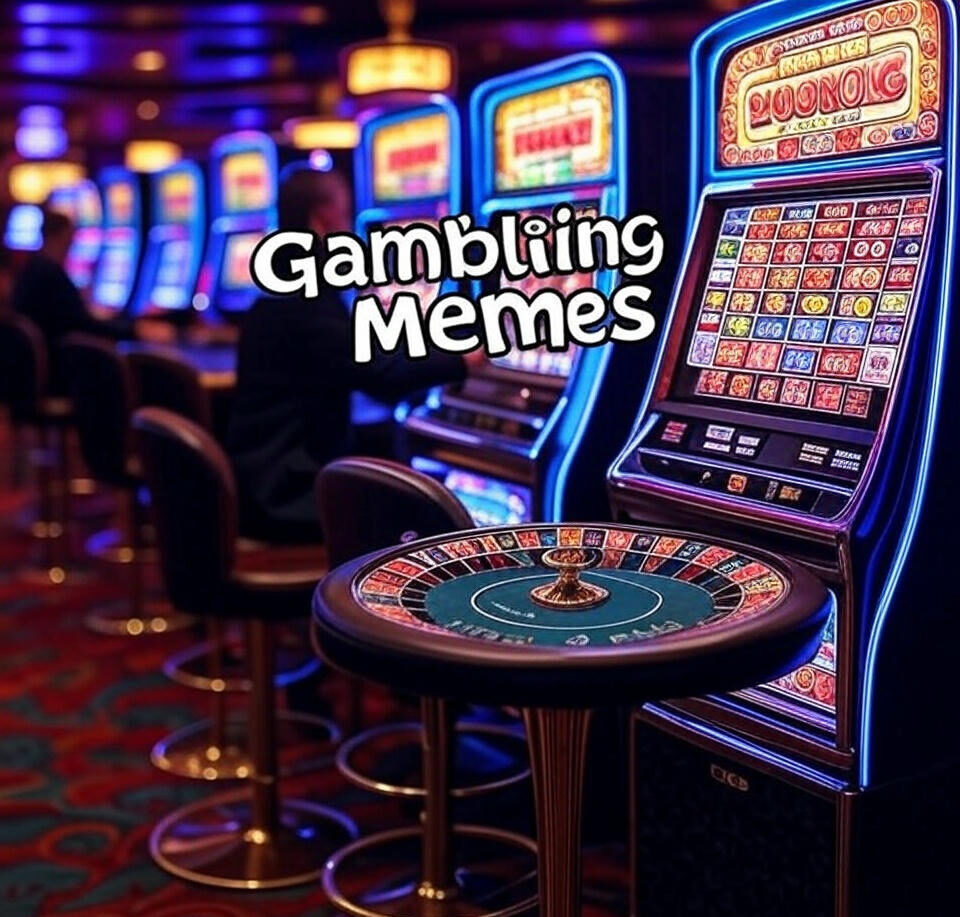Gambling Addiction in Ireland: A Comprehensive Overview of Prevalence, Impact, and Support
Gambling has long been a part of Irish culture, with activities such as horse racing, sports betting, and the National Lottery deeply embedded in social traditions. While many enjoy gambling as a recreational activity, for some, it can develop into a serious issue with far-reaching consequences. Gambling addiction, also known as problem gambling or gambling disorder, is a recognised behavioural condition that can lead to financial ruin, mental health challenges, and strained relationships. In Ireland, the rise of online gambling platforms has exacerbated the issue, making it more accessible and, consequently, more prevalent.
This article provides an in-depth exploration of gambling addiction in Ireland as of May 2025. It examines the scale of the problem, the contributing factors, the impact on individuals and society, and the available support and treatment options. Whether you are seeking to understand the issue, looking for help for yourself or a loved one, or researching the topic for professional purposes, this article aims to address your questions with clarity and compassion.

Understanding Gambling Addiction
addiction is a behavioural disorder characterised by an uncontrollable urge to gamble, despite the negative consequences it causes. It is classified in the Diagnostic and Statistical Manual of Mental Disorders (DSM-5) as a “Gambling Disorder,” with symptoms that include:
- A preoccupation with betting, such as constantly thinking about past bets or planning future ones.
- The need to gamble with increasing amounts of money to achieve the same level of excitement.
- Repeated, unsuccessful attempts to stop or reduce gambling.
- Using betting as an escape from stress, anxiety, or depression.
- Chasing losses by continuing to gamble in an attempt to win back money.
- Lying to friends or family about the extent of gambling activities.
- Jeopardising relationships, employment, or financial stability due to gambling.
Gambling addiction can affect anyone, regardless of age, gender, or background. However, certain groups, such as young men and those under financial stress, may be more vulnerable. In Ireland, the cultural acceptance of betting, combined with the rise of online platforms, has made this issue increasingly prominent.
The Scale of Gambling Addiction in Ireland
Recent studies provide a clearer picture of the prevalence of gambling addiction in Ireland, highlighting its significance as a public health concern. According to a 2023 report by the Economic and Social Research Institute (ESRI), approximately 130,000 adults in Ireland—equivalent to 3.3% of the adult population—experience problem betting. Additionally, an estimated 279,000 adults show moderate signs of gambling-related issues, indicating a broader at-risk population.
These figures are notably higher than earlier estimates, such as the 2019 ESRI report, which suggested that 0.8% of the population (around 40,000 people) were problem gamblers. The increase is attributed to improved survey methods, including anonymous online questionnaires, which have provided a more accurate reflection of the issue by reducing the stigma associated with reporting gambling problems. The data suggests that the true scale of betting addiction in Ireland may be up to 10 times higher than previously thought.
Demographically, problem gambling is most prevalent among men aged 30–39 with lower levels of education. This group is particularly susceptible due to socioeconomic pressures and the accessibility of online betting platforms. Furthermore, a 2023 survey revealed that 64% of Irish adults began gambling as children or teenagers, indicating that early exposure may contribute to the development of betting habits later in life.
The rise of online gambling has played a significant role in this increase. With smartphones and high-speed internet, individuals can now gamble anytime, anywhere. Online platforms offer a variety of options, from virtual slot machines to live sports betting, often accompanied by targeted marketing that appeals to vulnerable individuals. The normalisation of betting in social settings, such as betting on sports during a match, further complicates the issue by masking problematic behaviour.
Factors Contributing to Gambling Addiction in Ireland
Several factors contribute to the rise of gambling addiction in Ireland, ranging from cultural norms to technological advancements.
Cultural Acceptance of Gambling
Gambling is deeply ingrained in Irish culture. Horse racing, a national passion, attracts large crowds to events like the Dublin Racing Festival and the Galway Races, where betting is a common activity. Similarly, sports betting is widespread, particularly given Ireland’s enthusiasm for sports such as Gaelic football, hurling, and rugby. Advertisements for betting companies are a frequent sight during major sporting events, often portraying betting as a normal and exciting part of the experience. This cultural acceptance can make it difficult for individuals to recognise when their gambling becomes harmful, delaying their decision to seek help.
Economic Pressures
Ireland has faced significant economic challenges in recent years, including the aftermath of the 2008 financial crisis and ongoing cost-of-living pressures. For some, gambling may appear as a potential solution to financial difficulties, offering the promise of a quick win. However, this often leads to a cycle of loss, debt, and further betting in an attempt to recover. The financial strain caused by gambling can exacerbate existing economic pressures, creating a vicious cycle that is hard to break.
Technological Advancements
The advent of online betting has transformed the industry, making it more accessible than ever. Online casinos and betting apps are designed to be engaging, with features such as vibrant graphics, instant rewards, and loyalty programmes that encourage continued play. These platforms often use algorithms to personalise the user experience, targeting individuals with tailored offers that are difficult to resist. For someone prone to addiction, the constant availability of gambling opportunities can be overwhelming, particularly when coupled with the anonymity of online platforms.

Mental Health and Social Isolation
Mental health challenges, such as anxiety, depression, and stress, are closely linked to gambling addiction. In Ireland, where stigma around mental health has historically been a barrier to seeking help, individuals may turn to betting as a coping mechanism. The temporary thrill of a win can provide an escape from emotional pain, but this relief is fleeting and often leads to deeper problems. Social isolation—whether due to unemployment, relationship breakdowns, or the effects of the COVID-19 pandemic—can also drive individuals to gamble as a way to fill the void in their lives.
The Impact of Gambling Addiction
The consequences of gambling addiction are profound, affecting not only the individual but also their families, communities, and society as a whole.
Personal Consequences
For the individual, betting addiction often leads to severe financial hardship. Those with problem gambling spend an average of over €1,000 per month, which constitutes 28% of the total expenditure on gambling in Ireland. This level of spending frequently results in significant debts, with individuals borrowing money from friends, family, or lenders to fund their habit. In extreme cases, this can lead to bankruptcy, loss of assets, and even homelessness.
The financial strain is compounded by the impact on mental health. Problem betting is associated with higher rates of anxiety, depression, and suicidal thoughts. According to research, one in five individuals with problem gambling attempts suicide—a rate twice as high as that for other addictions. The National Suicide Research Foundation has identified betting as a contributing factor in several suicide cases in Ireland, underscoring the severity of the issue.
Impact on Families and Relationships
Families often bear the emotional and financial burden of a loved one’s gambling addiction. Trust can be eroded when the individual lies about their gambling or spends money meant for household expenses, such as rent or groceries. Partners may feel betrayed, and children can experience neglect or emotional distress as a result of the family’s financial instability. Research suggests that for every person with a betting problem, an additional seven people—such as family members or close friends—are directly affected, potentially impacting 780,000 to 1,040,000 individuals in Ireland.
Societal Costs
The societal costs of gambling addiction are significant. The social and healthcare costs associated with problem gambling likely outweigh the tax revenue generated from the betting industry. These costs include increased demand for mental health services, support for families in crisis, and interventions for financial hardship. Additionally, problem gambling can contribute to criminal behaviour, such as theft or fraud, as individuals attempt to fund their addiction. A recent case reported on 26 May 2025 highlighted a former private school treasurer who stole €500,000 to support her gambling habit, illustrating the broader societal implications.
Support Services for Gambling Addiction in Ireland
Fortunately, Ireland offers a range of support services for those struggling with betting addiction, as well as for their families. Below is an overview of key organisations and resources available as of May 2025.
GamblingCare.ie
GamblingCare.ie, established in March 2019, is a dedicated resource for raising awareness about safe betting practices and providing support for those affected by problem gambling. The organisation offers a variety of services, including counselling, advocacy, and referrals to other support options. These services encompass residential programmes, face-to-face and online counselling, and support groups. GamblingCare.ie also provides resources for family members, recognising the ripple effect of gambling addiction on loved ones.
Extern Problem Gambling
Extern Problem Gambling offers free counselling and a helpline for individuals and families across Ireland. The organisation reports that nearly half (46%) of the betting industry’s revenue in Ireland comes from individuals who gamble harmfully or problematically, highlighting the scale of the issue. Extern’s services are designed to be accessible, with trained professionals available to provide guidance and support.
Gamblers Anonymous Ireland
Gamblers Anonymous Ireland is a peer-support community where individuals share their experiences and support each other in overcoming gambling addiction. The organisation hosts regular meetings across the country, including online video conferences for those unable to attend in person. A regional meeting is scheduled for 28 June 2025, providing an opportunity for individuals to connect with others on their recovery journey. Gamblers Anonymous also offers support for family members through its Gam-Anon programme.
Rutland Centre
The Rutland Centre, with over 40 years of experience in addiction treatment, offers specialised programmes for betting addiction. In March 2025, the centre launched Ireland’s first fully funded gambling treatment programme, supported by the Health Service Executive (HSE). This 10-week programme includes group therapy, weekly online workshops (covering topics such as addiction awareness, emotional regulation, and relapse prevention), and fortnightly individual counselling sessions. Participants also have access to an aftercare programme, which includes support networks and follow-up sessions to ensure long-term recovery.
Cuan Mhuire
Cuan Mhuire, Ireland’s largest provider of addiction treatment services, offers a specialised programme for gambling addiction. The organisation has noted a significant increase in gambling-related cases since 2019, prompting the development of tailored residential treatment options. Cuan Mhuire’s holistic approach addresses the physical, emotional, and psychological aspects of addiction, providing a supportive environment for recovery.
Helplink Mental Health
Helplink Mental Health provides a free national counselling service for addiction, available seven days a week via online or phone sessions. The service caters to both young people and adults, offering a confidential space to discuss gambling-related issues and develop strategies for recovery.
New Initiatives and Regulatory Measures
In response to the growing prevalence of gambling addiction, Ireland has introduced several initiatives and regulatory measures to address the issue.
Fully Funded Treatment Programme
In March 2025, the Rutland Centre launched Ireland’s first fully funded betting treatment programme, a significant step forward in addressing the issue. The programme, supported by the HSE, is free for participants and includes a comprehensive 10-week course. It combines group therapy, online workshops, and individual counselling, with a focus on long-term recovery through aftercare support. This initiative reflects a growing recognition of gambling addiction as a public health issue and the need for accessible treatment options.
Gambling Regulatory Authority of Ireland (GRAI)
The Gambling Regulatory Authority of Ireland (GRAI) was established to oversee the gambling industry and implement measures to combat problem gambling. The GRAI focuses on education, awareness, and protective measures, such as the introduction of a national self-exclusion register. This register allows individuals to voluntarily exclude themselves from accessing licensed online gambling platforms, providing a practical tool for those seeking to limit their gambling activities. The GRAI’s efforts aim to create a safer gambling environment and reduce the harm caused by problem gambling.
Recent Developments and Concerns
As of May 2025, several developments and concerns have emerged in relation to gambling addiction in Ireland and the broader region.
High-Profile Cases
On 26 May 2025, a notable case came to light involving a former private school treasurer who stole €500,000 to fund her gambling addiction. She sold her home and surrendered her pension to repay the funds, highlighting the devastating personal and societal consequences of unchecked gambling. Such cases underscore the need for greater awareness and support for those struggling with addiction.
Gambling in Northern Ireland
In Northern Ireland, problem gambling remains a significant issue, with a 2024 survey indicating that 3% of respondents exhibit signs of problem gambling—similar to the rate in the Republic of Ireland. On 22 April 2025, concerns were raised about the lack of adequate treatment options, with calls for increased support and funding. The high prevalence of gambling-related harm in Northern Ireland mirrors the challenges faced in the Republic, suggesting a need for coordinated efforts across the island.
Concerns About Youth Gambling
There is growing concern about the normalisation of gambling among young people, particularly with the rise of mobile gambling apps. A 6 May 2025 article in The Irish Times described gambling as a “casino in your hand,” noting that the accessibility of online platforms has created a hidden public health crisis. The article highlighted the secrecy and stigma surrounding gambling addiction, which often prevent individuals from seeking help. The GRAI is expected to play a key role in addressing this issue, particularly through education and prevention initiatives aimed at younger audiences.
Conclusion
Gambling addiction is a significant and growing issue in Ireland, with an estimated 130,000 adults (3.3% of the population) experiencing problem gambling, and a further 279,000 showing moderate signs of risk. The financial, emotional, and societal costs are substantial, affecting not only the individuals involved but also their families and communities. Factors such as cultural acceptance, economic pressures, technological advancements, and mental health challenges contribute to the prevalence of the issue, particularly among vulnerable groups like young men with lower levels of education.
However, there is hope. Ireland has made significant strides in addressing gambling addiction through a range of support services, including GamblingCare.ie, Extern Problem Gambling, Gamblers Anonymous, the Rutland Centre, Cuan Mhuire, and Helplink Mental Health. The launch of the first fully funded treatment programme in March 2025, along with the establishment of the Gambling Regulatory Authority of Ireland (GRAI), reflects a growing commitment to tackling the issue at both a societal and individual level.
For those struggling with gambling addiction, or for loved ones seeking to support them, these resources provide a lifeline. Recovery is possible with the right support, and the increasing focus on education, prevention, and treatment offers hope for a future where the harms of gambling are minimised. If you or someone you know is affected by gambling addiction, reaching out to one of the organisations mentioned above can be the first step towards a healthier, more balanced life.
The Hidden World of Illegal Gambling in the UK: History, Trends, and Tips for Gamblers
The Hidden World of Illegal Gambling in the UK: History, Trends, and Tips for Gamblers…
Top Gambling Memes: Funny Casino, Poker, and Betting Memes for Gamblers 2025
Gambling is a whirlwind of thrills, near-misses, and the occasional face-palm moment that unites risk-takers…
Gambling Quotes
A Collection of Gambling Quotes: Humour, Wisdom, and Life Lessons Gambling, an endeavour as ancient…


